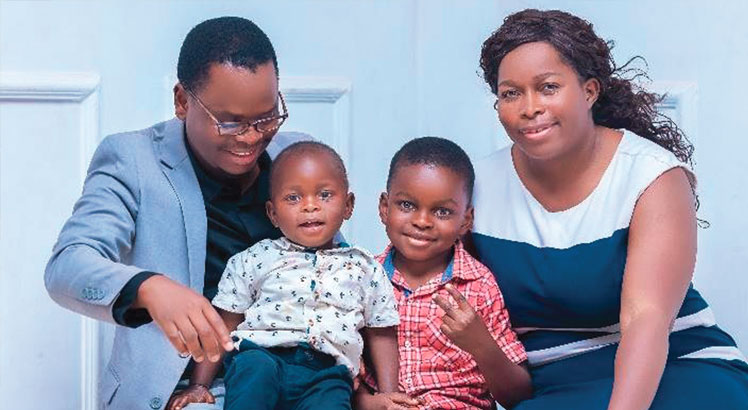Deborah Banda: founder of women and youth empowerment centre
If you met Deborah Banda in 2005, she was just a regular woman working as a house maid for a certain family in Nyambadwe, Blantyre, for survival.
Through her dedication and passion to do better in life, she fought against all odds to become Malawi Human rights Commission deputy director for gender and women’s rights.
Deborah also founded Women and Youth Empowerment Centre (WAYEC)— a Christian organisation that empowers women and youth survivors of gender-based violence (GBV) to improve their mental health, attitudes and socio-economic status.
The initiative was founded this year and is in its initial phases, but has made some strides.
It has recruited 20 people, including women and the youth Tsale Village in Lilongwe.
Deborah’s mission is to create a community that is socially and economically independent.
“I got inspired by my initiative in 2018 called Am Equally Important. I worked with students at Domasi Demonstration Secondary School on gender-based violence using art such as drama, painting, drawing, music and dance.

“My other inspiration was the Indian Technical Economic Cooperation programme that I attended in India— at the National Institute of Technical Teachers Training and Research in November 2022,’’ she said.
The deputy director recognised many organisations helping with GBV related issues, but said there are still gaps in the aftermath.
“Most survivors are re-victimised because they are highly dependent on someone financially, making them more vulnerable to GBV. I thought about helping them through art therapies and skills development.
“I deal with women because studies have shown that most of them are not economically and exposed to GBV. I am happy when I help someone even when I will not get anything in return, so long as the person is happy,” she said.
Beneficiaries are given agricultural and vocational skills such as welding, mechanics, phone repairing, dish installation and plumbing.
Deborah said the first stage of the programme is art therapy and after participants regain their confidence, they move to another stage of empowerment of skills development.
She added that identification of participants is done through consultation with chiefs.
She then meets with them based on their experiences and resource availability.
“We have no sponsors and I use my money, not because I have too much, but my heart just wants to reach out,” she said.
God willing, Deborah would like to register the organisation and benefit more women and the youth.
Every time she sees a helpless woman, she sees their power and potential.
She believes confident women can make a difference.
“I always say there is light at the end of the tunnel and there is no situation that is permanent. My first job was a housemaid, but I have moved on. I worked in that capacity for about two years before I was promoted to waitressing at a restaurant in Blantyre.
“While there, I did an analogue electronics course as I have always wanted to become an engineer.
Deborah went on to do a diploma. Later, she enrolled at the Blantyre Institute of Management to study hotel catering services.
She also sat for the university entrance examinations for the second time.
She has a diploma in food and beverage, housekeeping, front office
and restaurant management.
Deborah was was selected to Chancellor College to study Bachelor of Arts in Humanities.
She graduated in 2012, joined teaching and in 2018 she joined the Malawi Institute of Education as an assistant curriculum specialist in expressive and creative arts.
Later, then she joined the Malawi Institute of Education and was there until November 2020 when she joined the Malawi Human Rights Commission.
In 2018, she also enrolled for a master’s degree in science in gender and at the Lilongwe University of Agriculture and Natural Resources and graduated in 2020.
To women who are going through different traumas from abuse, Deborah urges them to speak up and not suffer in silence.
She added that staying in an abusive relationship is not justified.
In her free time, she likes to cook, spend time with her family and friends.
Deborah is married to Chisomo Banda and they have two children.
She comes from Tradition Authority Chigaru, Semu Village in Blantyre.
To girls, Deborah says, poverty does not kill and they should not sell their bodies in its name.
She said: “You can do any piece work or business. I have done piece works at building sites and done small businesses such as selling cucumbers, boiled maize, waters and cooked Irish potatoes just to avoid being abused in the name of wanting to end my poverty. Men do not give their help for free.”
Just like any person who aspires to be great, Deborah is inspired by great women such as Dr. Joyce Banda, Vera Chirwa, Habiba Osman, Emma Kaliya, Sarai Chisala and the late Ama Ata Aidoo from Ghana.





